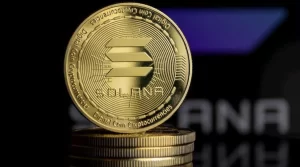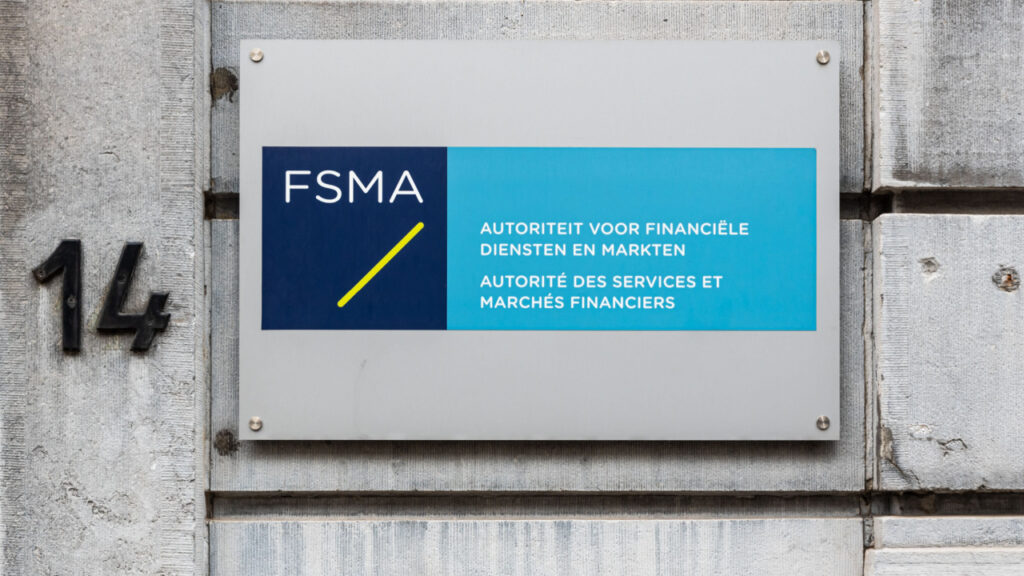Just eight percent of Americans said they held positive viewpoints on cryptocurrency by late November, a CNBC survey found at the time.
The media outlet’s All-America Economic Survey marked plummeting sentiments on cryptocurrency following the collapse of FTX, down from 19 percent in March.
It conducted research from 26 to 30 November and surveyed 800 respondents across the United States. CNBC published the findings on 7 December.
According to the polling, negative views on cryptocurrency spiked from 25 percent to 43 percent in March and November, respectively.
A survey conducted by @CNBC shows that the percentage of Americans with a positive view on #crypto has dropped from 19% last March to only 8% this November, while the crypto 'non-fans' is up from 25% to 43%. Do you feel crypto's reputation has been hit the same way in our region? pic.twitter.com/kOOEu5RN9u
— BitOasis (@bitoasis) December 9, 2022
CNBC wrote, “[The results show a] dramatic fall for an investment that was touted as its own asset class and had a celebrated coming-out party on the global stage with multiple Super Bowl ads and celebrity endorsements: That popularity attracted many ordinary Americans to crypto and the survey shows 24% of the public invested in, traded or used cryptocurrency in the past, up from 16% in March.”
It added that roughly 42 percent of respondents had a “somewhat or very negative view” of cryptocurrencies.
CNBC explained further, “According to the survey, 42% of crypto investors now have a somewhat or very negative view of the asset, in line with the 43% result for all adults in the survey. The main difference: 17% of crypto investors are ‘very negative’ compared with 47% for non-crypto investors”
The news comes after Bitfury chief executive Brian Brook said at the CNBC Financial Advisor Summit: “90% retail market, which means the sentiment of mom-and-pop investors really matters:”
“And so when you read FTX stories on the front page of the Wall Street Journal, literally every day for the last 30 days…what it does is for relative new entrants, they get scared. [As] a result, liquidity is thinner than it would have been and people’s willingness to invest is lower.”
Negative outlooks on the cryptocurrency market come amid a series of crises that have rocked investors across the industry. Two major crypto assets – TerraUSD (UST) and Celsius – collapsed in May and July, respectively, causing cryptocurreny holders to lose massive sums of money.
Crypto exchange giant FTX also shocked investors when it collapsed on 11 November, resulting in major knock-on effects across the crypto market and triggering global investigations.
Dubai, United Arab Emirates, 9th December, 2022, Chainwire
Revolutionary Artificial Intelligence trading and portfolio management company, Tafabot, has partnered with China’s leading Crypto exchange company, Huobi, to provide automated trades to crypto enthusiasts.

What started as an idea during the COVID19 lockdown in 2020, is today one of the leading solutions in the crypto industry today. Having been in the beta phase for nearly 2 years, Tafabot finally went live on September 12th 2022 on the iOS and Google App Stores.
The automated non-custodial trading bot has its operational headquarters in Dubai, United Arab Emirates, With across-border utility to serve millions of crypto professionals, newbies, and enthusiasts, Tafabot is the world’s pioneer bot system enabled for futures, spot and arbitrage markets combined. Both Huobi and Tafabot view their partnership as a strategic step towards improving the easy adoption of crypto and blockchain knowledge across communities around the world.
Samuel Benedict and Dr. OVO (Otubo Victor), co-founders of Tafabot, said, “our primary motto, especially for now, is excellence and speed. We are glad that in just 50 days of going live, we have already closed a strategic partnership with one of the largest players in the industry. For us, it’s reassuring that what we are doing is really having a noticeable impact.”
Samuel Benedict, Tafabot’s CTO, expressed confidence in the ability of the partnership to unlock rapid inclusion and economic opportunities for all. “We didn’t like the traditional trading methods that existed out there. People had to constantly be on screens all day just to trade. Of course, this has discouraged a lot of interested persons from really getting their hands on crypto. And yes, there are also some other bots that came before us, but just like the exchanges, their processes are complex and do not bring in any simplicity. This was part of what inspired us to build an easy to use, reliable software that both newbies and pros can enjoy. We did it in the background for 2 years and once the power of Tafabot was realized, we opened it to profit everyone.”
In further describing the partnership, the co-founders stated among other things that more partnership conversations are currently ongoing and will be announced in coming months. “Currently we are compatible with all major exchanges in the industry, however this partnership offers more. Our users are easily identified by Houbi for exclusive benefits including reduction on trading fees and much more. We are in talks with some other exchanges that we are plugged into for similar partnerships and 2023 will be a big year for more announcements.”, Benefit and Victor added.
With 30 of the world’s most reputable exchanges already plugged into the Tafabot algorithm, the team believes this is one of the next big things in crypto. Tafabot provides what is today, the world’s fastest automated trading tool, with a bot speed of up to 5 seconds. It is also one of the most diversified bot systems, with bot options developed for optimal performance in trading bullish, bearish and sideways market conditions.
It doesn’t matter wheather users are beginners who wants to dive into the world of crypto trading or professional traders, Tafabot’s automated systems provide every tool they need at every level. The safety of user’s funds is one less thing to worry about also, as the capital and trade profits are always with them, in the user’s exchange and never with Tafabot. This way users have all the control they need, anyday and any time.
Some of the bots services offered by Tafabot include:
1. The Martingale Bots: Available for both Spot and Futures Markets. Martingale bots allow users to create multiple entries, to let them benefit in dynamic market conditions.
2. DCA Bots: The Dollar-Cost-Average bot helps users divide their investment into smaller pieces and buys assets at various points over time and at different prices, to realize a better average price for their position, as well as drastically reduce risks in the case of volatility. It is available for spot and Futures trading.
3. Custom Bot: This allows users to build their own intelligence into the Tafa ecosystem. With the custom bots, they can connect their self-created bot(s) to TradingView indicators and still automate all of their trades.
4. Grid Bots: The Tafabot Grid Trading realizes profits from the ups and downs of the market, by trading within a price range and continues to execute orders and take profit as long as the market is within that range. It is available in spot and futures.
5. SIB Bot: Smart invest Bot is a specialized DCA bot for spot market only, with extra features for building long term portfolio, by buying assets daily in a way that user’s average entry price mimics the current price of the market.
6. Arbitrage Bot: With earning capacity of 15 to 40% yearly, the Tafa arbitrage bot is a market neutral strategy that exploits market variations (price gaps and funding fees) between spot and futures market. It’s a market-neutral strategy in which the risk involved is extremely low.
7. Mirror Trading Bot: With this intelligence, users can simply copy successful traders on Tafabot and leverage on their efforts and configurations to earn daily.
8. Crypto Signal Bots: Allows users to automatically trade signals received from their favorite signal providers 24/7. Plus, Signal Providers are allowed to create accounts with Tafabot and undergo approval processes.
Apart from enabling newbie and advanced traders set up bots on all major exchanges for their spot, futures, and arbitrage trading, Tafabot was also built to house features like:
- Wallets: A free to use USDT wallet, with zero transaction fees when sending peer to peer within the Tafa ecosystem. This is available to all users with an active license.
- Game Predict & Win: Lets users predict the price of bitcoin within time frames and win big.
- Affiliate Program: Refer friends to Tafa and earn up to 30% of direct and indirect referral bonus on license fees and unlimited trading fees from up to 15 generations of downlines.
About Tafabot
Tafabot brings well over 30 combined years of Finance, Investing and Trading experience into the crypto space. The platform is portrayed to be transparent, secure, and easy to understand. With this ingenuity, the era of chasing close friends and family or even strangers considered to be experts, to trade on one’s behalf may be finally behind us.
Contact
Tafabot Team
Tafabot Software LLC
bdd@tafabot.com
United States Commodity Futures Trading Commission (CFTC) chief Rostin Behnam commented that Bitcoin is the only crypto-based commodity to date, while speaking to an audience at an event at Princeton University.
In a Fortune report, the publication cited Benham’s comments, which contradicted his positive sentiments on Ether as a commodity. According to the interview, he aimed to explain whether a crypto asset was a commodity or security.
Today at Princeton, CFTC Chair Rostin Behnam said that the only cryptocurrency that should be viewed as a commodity is #Bitcoin, walking back from previous remarks made in October when he suggested Ether may also be a commodity.https://t.co/o5NrejDVaU
— Michael Saylor⚡️ (@saylor) December 1, 2022
In the US, Republican lawmakers have slammed the Securities and Exchange Commission (SEC) chairperson of collaborating with the now-bankrupt FTX to “obtain regulatory monopoly.”
Despite this most do not consider Bitcoin a security due to its decentralisation. The news comes after SEC officials targeted Ripple with a massive lawsuit, sparking backlash from blockchain advocate groups such as the Blockchain Association.
SEC Ties to FTX
Conversely, the SEC has been similarly lambasted due to links with FTX. The Digital Commodities Consumer Protection Act (DCCPA) provided the CFTC with oversight capacities, with the CFTC exec defending the Committee’s actions.
He said that it had limited oversight powers and slammed authorities for creating a “matrix of regulators.” The leader also urged better collaboration to manage the growing number of regulations on crypto.
Following the statements, Benham attended a congressional hearing on Thursday to explore the downfall of the FTX exchange, triggered by massive liquidity instability and a major bank run on the FTT cryptocurrency.
Global Crypto Crackdown?
The news comes as the United States, Bahamian, South Korean, Singaporean, and Australian regulators launch a heavy crackdown on crypto platforms to regulate their activities.
Many governments have reconsidered the stability of some cryptocurrencies and aim to require licences of operation for crypto firms in their respective countries, among other measures.
Cryptocurrency proof of reserves has become a major focus for trading exchanges following the bankruptcy of FTX, but some have slammed the measure as “pointless,” according to a Kraken executive.
Jesse Powell, Kraken chief executive and co-founder, said in a recent Twitter post that using proof of reserves failed to disclose liabilities publicly and needed to include them to offer full transparency.
Powell has previously slammed other exchanges for failing to include crypto accounts with negative balances, adding reserves were not wallet listings but rather assets minus their liabilities.
The news comes after Binance and other exchanges published their proof of reserves amid the ongoing FTX collapse, but despite this, Powell called for greater transparency.
I’m sorry but no. This is not PoR. This is either ignorance or intentional misrepresentation.
— Jesse Powell (@jespow) November 25, 2022
The merkle tree is just hand wavey bullshit without an auditor to make sure you didn’t include accounts with negative balances. The statement of assets is pointless without liabilities. https://t.co/b5KSr2XKLB
In a Twitter thread, he called the publication “either ignorance or intentional misrepresentation.”
Powell added: “The merkle tree is just hand wavey b*llshit without an auditor to make sure you didn’t include accounts with negative balances. The statement of assets is pointless without liabilities.”
Further in the thread, he said the point of proof of reserves was to “understand whether an exchange has more crypto in its custody than it owes to clients.”
He also urged global media to avoid “overselling it and misleading consumers,” but rather learn how proof of reserve systems operate.
The news comes after multiple exchanges, including Binance, Kraken, and Coinbase have called for greater evidence to show the financial health of cryptocurrency exchanges. This comes after former FTX chief executive Sam Bankman-Fried’s mishandled crypto assets, leading to the collapse of the exchange.
Crypto owners have begun moving their assets to self-custodial wallets to avoid further issues with trading exchanges, and governments such as Singapore and Australia have begun tightening regulations for platforms operating in their respective nations.
Binance, the world’s largest cryptocurrency exchange plans to rejoin the Japanese crypto market after it bought out a 100 percent share of Sakura Exchange BitCoin (SEBC), reports revealed on Wednesday.
Company chief executive Changpeng Zhao said in an announcement that his crypto platform had vowed to reenter the Japanese market and would strictly comply with regulations.
#Binance Acquires JFSA Registered Sakura Exchange BitCoin, Committed to Enter Japan Under Regulatory Compliancehttps://t.co/xfdnaY2hiO
— CZ 🔶 Binance (@cz_binance) November 30, 2022
The acquisition would signal a reentry to the world’s third-largest economy after a four-year pause.
In a statement, a Binance spokesperson told the media: “We can say that the acquisition of SEBC marks Binance’s first license in East Asia, and as Asia is a market with potential, we hope to expand in other regions.”
Rethinking Market Strategies
The news comes after the Japanese Financial Services Agency (FSA) hit the crypto trading firm with a notice for failing to obtain an operating licence. Japanese authorities issued similar warnings in 2021.
Binance has acquired similar stakes in major firms in Malaysia after it faced difficulties entering the Southeast Asian nation’s cryptocurrency markets.
It also resurfaced in Singapore after buying 18 percent of shares in a national stock exchange and regained access to the United Kingdom’s pound payment systems after teaming up with Paysafe due to blocks from regulators.
Location, Location, Regulation
According to Binance, the SEBC acquisition notes Binance’s first East Asian operating licence. It previously secured approvals to conduct business in Bahrain, Italy, France, Abu Dhabi, Spain, New Zealand, Dubai, Poland, Cyprus, Lithuania, and Kazakhstan.
Takeshi Chino, general manager of Binance Japan, said in a statement the Japanese market would “play a key role in the future of cryptocurrency adoption.
He added: “As one of the world’s leading economies with a highly-developed tech ecosystem, it’s already poised for strong blockchain uptake. We will actively work with regulators to develop our combined exchange in a compliant way for local users. We are eager to help Japan take a leading role in crypto.”
Hitomi Yamamoto, Chief Executive of SEBC, added that his company was “honored and delighted” to announce the news with Binance.
She concluded: “On top of our effort to prioritize user protection, Binance’s strong compliance system will contribute to building a more compliant atmosphere for users in Japan and help them access key crypto services needed for mass adoption in the future.”
Shira Greenberg, Israel’s chief economist for the Ministry of Finance, outlined several recommendations for regulating digital assets amid the country’s cryptocurrency adoption plans.
The 109-page report urges lawmakers to develop a more comprehensive set of regulations to control cryptocurrency trading platforms via Tel Aviv’s financial watchdogs.
She said that the country should restrict licencing requirements for trading platforms and crypto issuers along with the safe management of digital assets and subsequent funds.
Expanded Powers across Crypto Industry
Greenberg also calls for expanding powers to regulate licencing rules and build a better framework for taxing, buying, and selling cryptocurrencies. It also recommends that the government determine if it should monitor digital assets and cryptocurrency payments under Israeli law.
She also urged licencing and supervision mandates for stablecoin-issuing firms and an interministerial committee for scrutinising decentralised autonomous organisations (DAOs) using the blockchain.
Despite this, she noted technological neutrality was crucial while imposing cryptocurrency regulations.
She also cited data that Israelis only comprised 0.04 percent of total global cryptocurrency transactions, or 21 million transactions, with 2 percent owning or using crypto digital wallets.
ISA Cautions Crypto Investors
The figures come after the Israel Securities Authority (ISA) cautioned investors on cryptocurrencies in a statement, stating such investments “carry heavy risks for investors, including a tangible risk of loss of the entire investment amount.”
It added: “The ISA urges investors who are considering putting their money in this field, either directly or indirectly, to read this warning carefully before making a decision.”
Reasons behind the statement included market risks such as low liquidity and market bubbles, operational risks involving fraud or trade manipulations, cybersecurity risks due to hacking and theft of passwords, and regulatory risks leading to “significant” restrictions for companies in the sector.
Cryptocurrency leader Bitcoin (BTC) may risk plummeting below $7,000 in a worst-case scenario, DecenTrader co-founder FilbFilb said in a recent broadcast.
Speaking on Thanksgiving day in a live stream, he warned of a sub-$7,000 trading bottom for BTC/USD.
In his talks, he said: “In my worst case scenario, I think that would be probably where we end up, like [old-school], rock-hard support.”
He referenced a bidding zone of roughly $6,500, where purchasers would likely “start refilling their bags” as the market reached bear market levels double those seen in 2018 and the onset of the coronavirus pandemic in March 2020.
Filbfilb stated the situation would “unlikely” take place but cautioned that the ongoing FTX collapse could worsen market sentiment, leading to such an incident.
He added: “Until we have further information, that seems unlikely, and as I say, I think the fact that we haven’t dumped harder than we actually really could have done is a good sign for the bulls.”
Regarding measures to take to avoid such a market bottom, crypto may have to “dodge some bullets” over the FTX crisis, he said, adding the greater market would need to keep resilient.
Historic Highs, not Market Lows?
Speaking on BTC bear market pits, Philip Swift, Decentrader’s co-founder, added Bitcoin wallets with roughly 1 BTC or more would reach one million for the first time in history due to exchange withdrawals linked to the FTX scandal.
A future Bitcoin block subsidy halving incident set to take place in 2024 may also play a key role over the next 18 months, leading to “some positive effect on price in terms of media coverage and anticipation of that next halving event,” Swift added.
Other reports from Glassnode found BTC could reach the end of its bear market cycle. Prior to the most recent developments, it speculated that the market could have reached its macro price bottom and would weather the “perfect storm” of major on-chain losses.
Belgium’s Financial Services and Markets Authority (FSMA) issued a statement this week that cryptocurrencies such as Bitcoin, Ether, and others do not constitute securities.
The FSMA’s statement comes amid a report published in July, with the most recent statement clarifying questions on how the nation’s finance regulations affect digital assets.
The FSMA’s “stepwise plan” aims to classify cryptocurrencies issued by individuals and entities as a security in a non-legally binding agreement.
#News 📰 | Kwalificatie van cryptoactiva als effecten, beleggingsinstrumenten of financiële instrumenten
— FSMA (@FSMA_info) November 25, 2022
➡️ https://t.co/j5UZXXx214#tcrypto #cryptoactiva #MiFID #mededeling pic.twitter.com/r9xa2ryjG0
It explained in the statement: “If there is no issuer, as in cases where instruments are created by a computer code and this is not done in execution of an agreement between issuer and investor (for example, Bitcoin or Ether), then in principle the Prospectus Regulation, the Prospectus Law and the MiFID rules of conduct do not apply.”
It added that cryptocurrency not categorised under the new stepwise plan regulations could potentially face further restrictions if companies use the assets as a medium of exchange.
It added: “Nevertheless, if the instruments have a payment or exchange function, other regulations may apply to the instruments or the persons who provide certain services relating to those instruments.”
The Belgian regulators also explained its plan was neutral to the blockchain and other cryptocurrency technologies, but rather their use in markets.
The news comes after the first draft of the report, issued in July this year, to address Belgian digital asset entities. The European Parliament is set to adopt its Market in Crypto Assets regulation (MiCA), with Belgium adopting its stepwise plan before EU legislation takes effect in 2024.
The New South Wales Police Force has warned Australian crypto investors to avoid fake Bitcoin paper wallets.
Such wallets attract victims with crypto wallets with seemingly great benefits but gradually steal holdings from the owners.
The NSW Police Force wrote in a Facebook post that scams began as a paper crypto wallet with a QR code. Scammers leave paper wallets in public spaces such as streets and parks, they warned.
People scanning the QR codes for the wallets receive access links to crypto accounts with $16,000 Australian Dollars, but then users are requested to pay withdrawal fees and wallet credentials.
The NSW Police Force added: “Once the withdrawal fee is paid and the person’s crypto wallet details provided, the person’s cryptocurrency is stolen from their crypto wallets.”
Authorities have informed people to remain vigilant and avoid scanning paper QR codes or entering their personal credentials. They have been advised to turn in the wallets to local authorities.
Australia has been hit by previous paper crypto wallet scams, namely after Reddit users flagged a similar incident circulating in public places.
One user Pinnymc warned of the 0.5 percent transaction fee, stating: “If this was a legit wallet I should be able to withdraw and the transaction fee comes out of the balance. It’s such a shame because this looks so legit.”
According to Australia’s consumer watchdog site, Scamwatch, Australia has lost $242.5 million AUD to scammers in 2022 alone, leading authorities to monitor and respond to changing criminal activity.
Tornado Cash developer Alexsey Pertsev will remain detained for a further three months in the Netherlands, a court hearing on 22 November revealed.
To date, Dutch authorities have detained Pertsev for 103 days.
According to the hearing, which took place at the Palace of Justice in ‘s-Hertogenbosch, prosecutors stated Pertsev was central to Tornado Cash’s business.
WK Cheng defended Pertsev, stating the embattled company’s use cases and attempting to clear up misunderstandings from its operations.
During the trial, prosecutors officially accused him of money laundering, citing Tornado Cash’s protocol code.
Meanwhile the Tornado cash dev still sits in jail… https://t.co/NREbBBdZXY
— Coin Bureau (@coinbureau) November 24, 2022
Pertsev, from Moscow, Russia, is a flight risk and will not be released on bail, Dutch courts said. Dutch Public Prosecutor Martine Boerlage argued that Pertsev had complete control of the crypto platform.
Boerlage added that Pertsov and two additional developers, Semenov and Storm, held sufficient governance tokens to “always outvote everyone else” in proposals.
The US Treasury sanctioned Tornado Cash for alleged use from North Korean hackers laundering over $1 billion in digital assets, leading to Pertsev’s arrest in mid-August.
The Netherlands Public Prosecution Service said in a statement at the time: “On August 24th the Den Bosch District Court held a session regarding the [pre-trial] detention of the suspect. The courts chamber consisted of three judges, they heard the public prosecutor on the investigation and the suspicion. They also heard the defense. Afterwards the court decided to extend the pre-trial detention of the suspect by 90 days.”
The arrest has triggered outcry among open-source developers creating Web 3.0 platforms, many of whom are concerned how code will be used. Many have also slammed the detention as unjust, adding that disgraced former chief executive of the bankrupt FTX platform, Sam Bankman-Fried, remains at large and is still active in the crypto community after millions of customers lost their crypto holdings.











